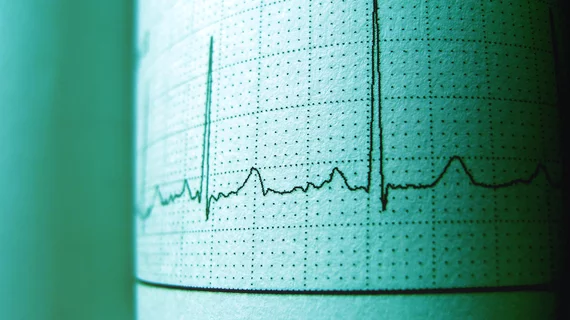Personal ECG solution approved by NICE for detecting signs of AFib
AliveCor, a California-based healthcare technology company focused on personal electrocardiogram (ECG) solutions, announced that the National Institute for Health and Care Excellence (NICE) is now recommending its KardiaMobile solution as a diagnostic tool for detecting signs of atrial fibrillation (AFib) in patients with suspected paroxysmal AFib. The new recommendation covers patients being treated by National Health Service providers in England and Wales.
According to AliveCor, KardiaMobile is the first personal ECG to receive such a recommendation. The solution is used by patients through the Kardia smartphone app; they place two fingers from each hand on two top electrodes, providing a "medical-grade" recording of their heart activity.
"AliveCor is proud to be able to offer the only NICE-recommended personal ECG to support remote cardiac care services for patients not in front of their cardiologist,” Priya Abani, AliveCor CEO, said in a prepared statement. "Today's recommendation not only highlights the clinical superiority of KardiaMobile against the current standard of care, but also its position as a more cost-effective solution, therefore warranting its value as a clinical tool to support rapid diagnosis of AFib."
"AFib diagnosis rates across the U.K. pre-pandemic were already too low," Matt Reed, a specialist with NHS Lothian, added in the same statement. “With difficulties in accessing in-person care and increased waiting times, concern is that diagnosis rates have fallen further, leaving thousands of people at risk of life-threatening cardiovascular complications, such as an AFib-related stroke. With the NHS over-stretched, it is encouraging that NICE has recognized the value of utilizing smart technology to support clinicians."
Click here to read more about NICE recommendations.
